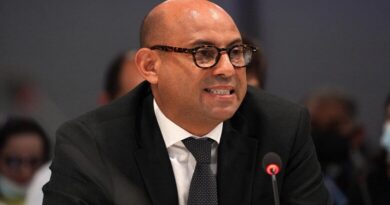G20 summit: Leaders back scaling up of green finance
World leaders at the just concluded G20 Summit held in Hangzhou, China have put their weight behind scaling up of the green finance as options put forward by the G20 Green Finance Study Group (GFSG) that is mandated to develop voluntary proposals for scaling up private capital for green investment.
The leaders in a communiqué issued at the end of the two-day meeting recognised the importance of scaling up of green finance to support environmentally sustainable growth globally.
This is the first time that G20 leaders have referenced the importance of green finance in the summit’s annual Communiqué. At the initiative of the Chinese G20 presidency, the G20 established the GFSG, co-chaired by China and the United Kingdom with support from United Nations Environment as secretariat.
Erik Solheim, Head of UN Environment, said: “The G20 is a leader on bringing together the goals of economic performance and environmental preservation, thanks in large part to China’s presidency. Green finance is vital to a green future, and we at UN Environment are proud to build on our work in this area in supporting the G20.”
More than 80 participants from all G20 members, as well as a number of invited countries and six international organizations, actively participated in the GFSG. Since launching in January 2016, the GFSG hosted four core meetings, developed the G20 Green Finance Synthesis Report and submitted it to the G20 Finance Ministers and Central Bank Governors Meeting held recently in Chengdu. The Synthesis Report comprehensively examines the necessity and challenges of developing green finance globally. It also provides seven options for action to overcome the challenges facing green finance development.
The G20 Leaders Communiqué states that: “We recognize that, in order to support environmentally sustainable growth globally, it is necessary to scale up green financing. The development of green finance faces a number of challenges, including, among others, difficulties in internalizing environmental externalities, maturity mismatch, lack of clarity in green definitions, information asymmetry and inadequate analytical capacity, but many of these challenges can be addressed by options developed in collaboration with the private sector.
“We welcome the G20 Green Finance Synthesis Report submitted by the Green Finance Study Group (GFSG) and the voluntary options developed by the GFSG to enhance the ability of the financial system to mobilize private capital for green investment.
“We believe efforts could be made to provide clear strategic policy signals and frameworks, promote voluntary principles for green finance, expand learning networks for capacity building, support the development of local green bond markets, promote international collaboration to facilitate cross-border investment in green bonds, encourage and facilitate knowledge sharing on environmental and financial risks, and improve the measurement of green finance activities and their impacts.”
Welcoming the Communiqué, Zhou Xiaochuan, Governor of the People’s Bank of China who represented the GFSG co-chair said: “The global financial system has a major role to play in mobilizing private capital for investments in green sectors, and appropriate incentives should be given to green investment.”
Mark Carney, Governor of the Bank of England, representing the UK and GFSG co-chair, said: “The adverse effects of climate change threaten economic resilience, growth and financial stability. Given the scale of the investment capital needed, financial markets are best placed to finance the transition to a low carbon economy. So the work of the Green Finance Study Group is critical in identifying options to address institutional and market barriers to bringing green finance into the mainstream.”
Alongside the Communiqué, G20 members also released a Green Finance Synthesis Report that examines the necessity and challenges of developing green finance. It provides seven options for countries and market actors to support international cooperation in mobilizing green finance, including: promoting international collaboration to facilitate cross-border investment in green bonds, and facilitating knowledge sharing on environmental and financial risks.



